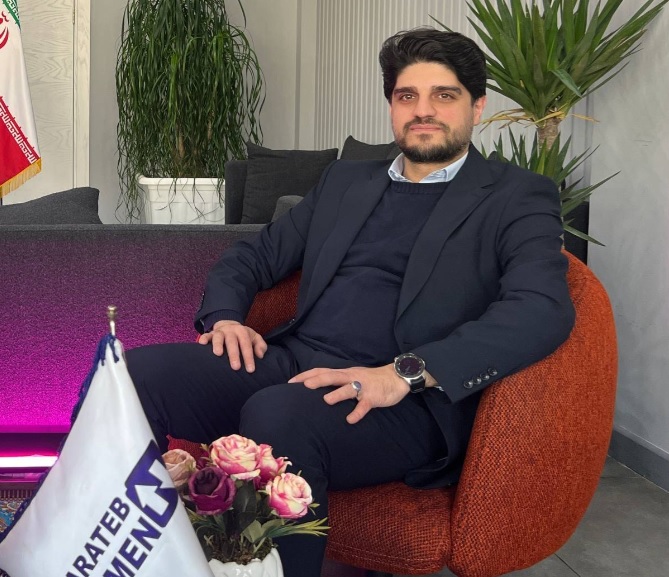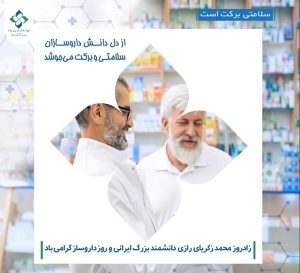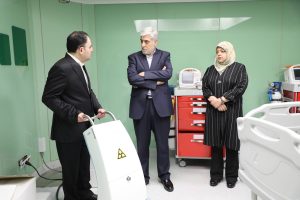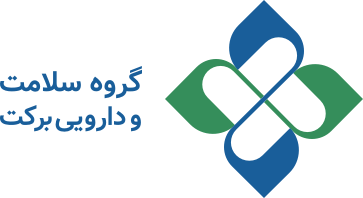
Yarateb Samen: Shaping Barkat’s Strategic Foundation in Pharmaceutical Supply & Distribution
Barakat Health and Pharmaceutical Group: Yaratab Samen Distribution Company, with over two decades of experience in the pharmaceutical industry, is one of the leading companies in the country’s pharmaceutical distribution sector. As a part of Barakat Health and Pharmaceutical Group, the company plays a key role in supplying and distributing high-quality medicines to hospitals, pharmacies, and healthcare centers.
In its journey of growth and development, Yaratab Samen faces certain challenges, which is why it has set specific strategies to improve its distribution and sales processes.
In this regard, we had a conversation with Engineer Siavash Moravej, the CEO of Yaratab Samen Distribution Company.
Below is the detailed interview:
• Please introduce yourself and explain the activities at Yaratab Samen. What factors do you consider to be the key to the company’s success in achieving its vision and goals?
My name is Siavash Moravej, and I have nearly eighteen years of experience in various industries. Ten of those years have been spent in distribution companies, including Alborz Distribution, Drug Distribution, Momtaz Distribution, Razi Distribution, and currently at Yaratab Samen. During this time, I have faced various challenges and have always strived to align with the goals and vision of the companies I have worked with.
Distribution companies face many challenges. One of the biggest recent issues is liquidity and, in particular, the ability to collect receivables, especially from sales to government hospitals.
In general, the key to success in distribution companies lies in managing receivables and ensuring that distribution and sales plans are designed in a way that guarantees the collection of payments.
The main challenge in the distribution industry is liquidity and, alongside this, the traditional management approach in the industry. Due to the large volume of work, the high workload, and the numerous suppliers, distribution companies face difficulties in managing their products and resources. For instance, in the pharmaceutical sector, the number of products in distribution companies can exceed five or six thousand items, and managing them requires a great deal of accuracy and control.
Furthermore, the geographical spread of companies across the country, and the large number of personnel, including salespeople, field representatives, and administrative staff, makes the processes even more complex and increases the workload. Yaratab Samen, for example, has over 20 branches nationwide, and major companies often have more than 30 branches.
Additionally, the large volume of work and busy schedules has limited the opportunity for updating and research and development in distribution companies, especially in today’s world where technology can simplify many tasks. Neglecting updates and the use of modern tools has exacerbated many issues, making the work in distribution companies tiring and time-consuming.
• Given the extensive distribution network with 20 active centers across the country, what strategies & policies are in place to optimize this network to enhance the quality and speed of pharmaceutical and medical equipment distribution?
The most important factor in effectively covering the country and ensuring that the right products reach customers on time is the quality and quantity of sales teams nationwide. After that, the distribution fleet is critical. One of our primary plans for next year is to strengthen the sales teams and then the distribution fleet to provide better services and deliver products to customers on time and with optimal quality.
We anticipate that one of the country’s challenges next year will be fuel and distribution, so we have devised plans to strengthen our fleet both in terms of ownership and through adding more vehicles to our leased fleet. By the grace of God, we also plan to implement smart distribution programs to reduce costs.
• To what extent are Yaratab’s plans aligned with the policies of the Ministry of Health?
All activities of distribution companies, including Yaratab Samen, are in line with the policies of the Ministry of Health and the Food and Drug Administration. The regulations for this sector, which includes pharmaceuticals and medical equipment, are much stricter than other industries, and distribution companies are required to comply with them. Naturally, Yaratab Samen is no exception to this rule.
• Considering the overall policies of the Barakat Health and Pharmaceutical Group, how are Yaratab Samen’s policies aligned with the goals and strategies of this holding?
Since Yaratab Samen is a subsidiary of the powerful and capable Barakat Health and Pharmaceutical Group, all of our policies and programs are aligned with the strategies of the parent group. As you know, Barakat Health and Pharmaceutical Group holds a significant share of the country’s health market, and many large manufacturing companies are part of this group.
One of the most important tasks that Yaratab Samen has, and which will become even more prominent in the future, is the potential to expand the market and deliver Barakat Group’s products to customers in the pharmaceutical and healthcare markets. In this regard, we have made the development of Barakat Group’s product portfolio one of our main goals, so that, God willing, we can serve the health community and also be a reliable arm for distributing Barakat Group’s products.
• You mentioned the challenges faced in this path related to distribution companies and Yaratab Samen. What solutions have you considered to manage and solve these challenges?
The most important plan we have to overcome these challenges is to systematize sales and reduce sales risks. To improve the collection of receivables and increase the likelihood of recovering them, we need to address the liquidity challenge, which is the biggest issue in the distribution industry today.
Therefore, we will implement sales-related receivable plans and strive for a systematic collection approach, especially in the public sector, where collection challenges are more pronounced. Additionally, we have devised plans for the centers to reach out to universities and follow up on receivables in this sector. Meanwhile, by expanding our portfolio in the private sector, we will work to increase cash flow in Yaratab’s distribution operations.
Since the nature of the products in our holding—whether they are from companies that have historically worked with Yaratab Samen or new companies added to the distribution network through Barakat Group—makes planning for receivables easier, we can enhance our ability to collect payments.
All the plans we’ve set from day one, and that we will continue in 2025, are focused on improving sales planning to increase collectability and reduce the risk of non-payment.
• As the CEO, what is your mid-term vision for the company?
Given the challenges that Yaratab Samen Distribution Company is currently facing, including shareholder changes, one of the key issues is aligning organizational culture, processes, and plans with those of the Imam Khomeini’s Executive Headquarters and Barakat Health and Pharmaceutical Group. This is our first program to implement.
Regarding the vision, since the most crucial aspect is overcoming challenges, we need to ensure that, alongside Alborz Distribution, we maintain a market share in the pharmaceutical sector for Barakat Health and Pharmaceutical Group to rely on. Furthermore, the planning of product production should be such that it provides reliable forecasts for Yaratab Samen’s distribution network.
Therefore, our main goal is to increase market share and achieve a significant profit that aligns with the holding’s expectations. I believe that within three years, we can transform Yaratab Samen Distribution Company into one of the top 20 distribution companies in the pharmaceutical and health sector.
With the support of Barkat Health and Pharmaceutical Group and the cooperation of my dedicated colleagues at Yaratab Samen, we hope to reach this vision, and the health community will also benefit from the company’s services and products.
-
Barkat Group specialized meeting

-
Safa Appointed as Barekat General Director

-
Barekat Health & Pharmaceutical Group at the 10th Iran Pharma Exhibition

-
Ali Safa visits Sobhan Oncology & Sobhan Darou

-
Pirsalehi & Safa visit Saman Daroo 8 Knowledge-based Company

-
Barekat Managing Director Visits Samen Pharmaceutical Company

-
Honoring Pharmacists’ Day

-
Barekat Top Executives Visiting to Barekat Hospital


